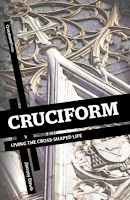 Mission, social justice, shalom, and the great commission. If there was a contest this year to see who could fit the most current Christian buzzwords on the cover of their book, Kevin DeYoung and Greg Gilbert would probably win with What Is the Mission of the Church? Fortunately for all of us, DeYoung and Gilbert are bringing some needed balance to these ideas rather than just riding the wave of popularity behind these hot topics.
Mission, social justice, shalom, and the great commission. If there was a contest this year to see who could fit the most current Christian buzzwords on the cover of their book, Kevin DeYoung and Greg Gilbert would probably win with What Is the Mission of the Church? Fortunately for all of us, DeYoung and Gilbert are bringing some needed balance to these ideas rather than just riding the wave of popularity behind these hot topics.Regarding these trending themes in Christianity:
I can't say this book is for everyone, but for the pastor or church leader who feels torn a hundred different directions with good things the church could be doing, this book brings the focus back to "the main thing". After an introductory chapter, the bulk of the book is spent doing one condensed biblical theology after another regarding the Great Commission, the biblical meta-narrative, the gospel, the kingdom of God, social justice, and shalom. While none of these chapters are comprehensive treatments on such themes, the authors give sufficient time to each to make their case:
"We are concerned that in all our passion for renewing the city or tackling social problems, we run the risk of marginalizing the one thing that makes Christian mission Christian: namely making disciples of Jesus Christ . . . We want to help Christians articulate and live out their views on the mission of the church in ways that are more theologically faithful, exegetically careful, and personally sustainable."
If I may make two observations not directly regarding the content of the book: (1) This is now the fifth book I've read authored or co-authored by DeYoung, and it is certainly the driest. There is no fluff, personal anecdotes, or humorous illustrations. This is DeYoung at his most mature, perhaps because he feels the ideas are most dire. (2) This is one of the most seamlessly co-authored books I've ever read. Most of the books I've read written by two or more authors suffer from a choppy train of thought, awkward self-references, and painful transitions between authors that all serve to break up the flow of the book. Not so with this book.
"In the end, the Great Commission must be the mission of the church for two very basic reasons: there is something worse than death, and there is something better than human flourishing . . . Universal shalom will come, but personal redemtion comes first . . . We are not called to bring a broken planet back to its created glory. But we are to call broken people back to their Creator."
What Is the Mission of the Church? is at the same time an important corrective and an impassioned plea for the church to rightly prioritize among all the good things we can be about doing.
Rating: 3 1/2 out of 5 stars
Recommended for: Pastors, church and missions leaders
This books was a free review copy provided by Crossway.


















































